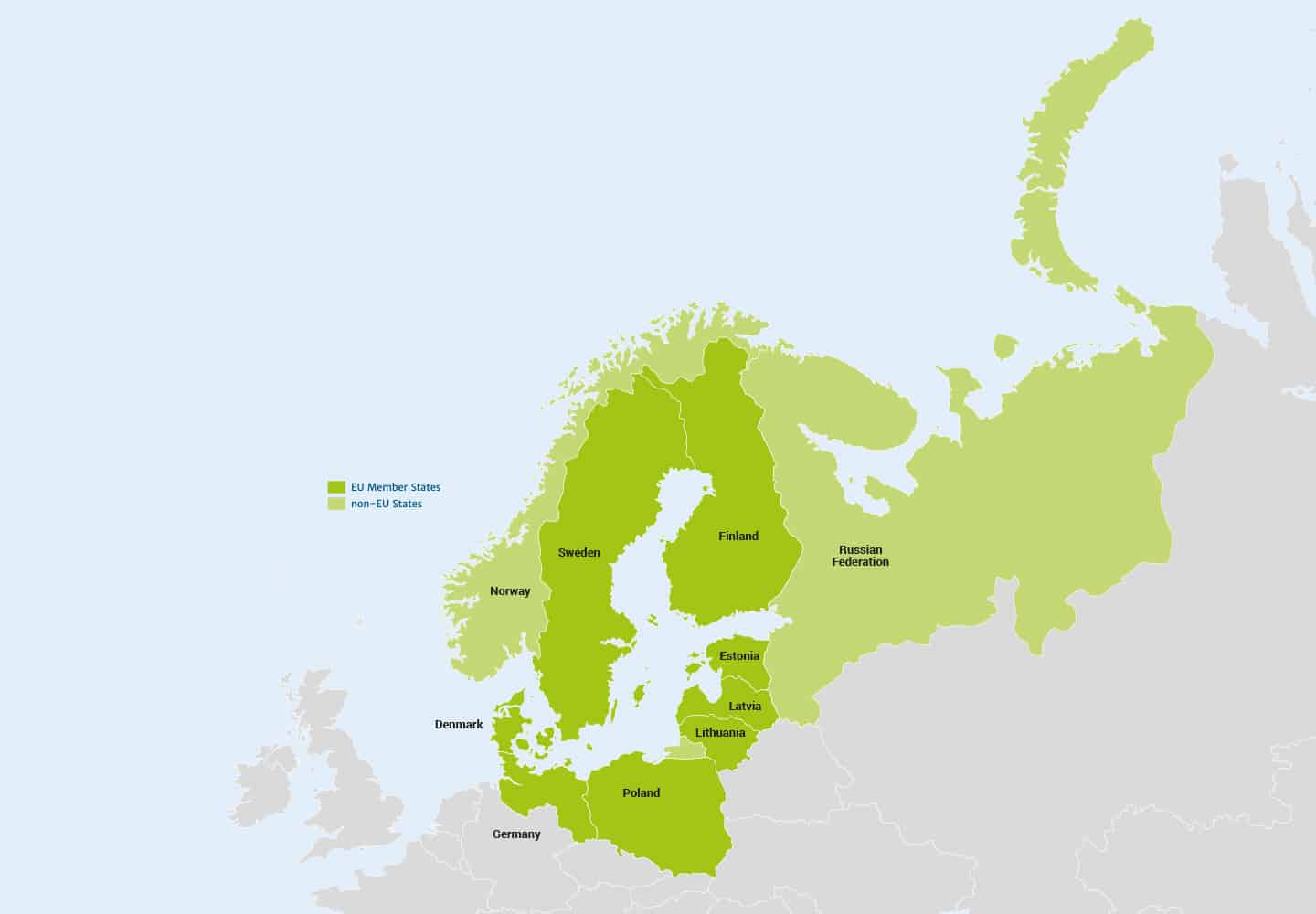Interreg Baltic Sea Region 2014 – 2020
EU funding for people with smart ideas of how to shape the region
Turning great solutions into common practice
Interreg Baltic Sea Region 2014 – 2020
Interreg Baltic Sea Region 2014-2020, as one of more than 100 Interreg programmes, was improving life of Europeans by funding cooperation: one project at a time. The Programme provided more than money: it created an environment for working together to let great solutions become common practice.
Turning great solutions into common practice
Projects at
Interreg Baltic Sea Region
2014 – 2020
The Programme co-financed some 200 projects with more than 2,500 partners from the Baltic Sea region countries and beyond. Each project has its own share in making the region more innovative, more sustainable and better connected.
Each project involves at least three partners from three different countries from the Programme area. The total project budgets typically range between EUR 1.5 and 4.5 million for seven or more partners working together for two to three years.
projects
partners
EUSBSR flagships
million ERDF allocated
Interreg Baltic Sea Region 2014 – 2020
Programme documents
Explore the interactive map of projects, connections among partners and more
Cooperation goes visual
Interreg Baltic Sea Region 2014-2020
Funding under four priorities
Priority 1: Capacity for innovation
offers support for e.g. development of innovation infrastructures, implementation of smart specialisation strategies and development of non-technological innovations.
Priority 2: Efficient management of natural resources
highlights the need to manage natural resources more efficiently. Resource efficient blue growth, renewable energy sources, energy efficiency and clear waters are areas that receive support.
Priority 3: Sustainable transport
focus on support of interoperability, accessibility of remote areas, maritime safety, environmentally friendly shipping and urban mobility.
Priority 4: Institutional capacity for macro-regional cooperation
offers funding to Seed Money projects of the EU Strategy. In addition it supports the coordination of the EU Strategy for the Baltic Sea Region the stakeholders of the Strategy: here assistance to the Priority Area Coordinators and Horizontal Action Leaders, organisation of Strategy Forums and other implementation tasks are co-financed.
Interreg Baltic Sea Region 2014 – 2020
Factsheets on project achievements
Factsheets provide an overview of the achievements gained by the transnational projects within the Interreg Baltic Sea Region Programme 2014-2020.
Here you will find some examples of the projects´ solutions and for whom these solutions have been jointly developed. Many of these projects helped to advance the implementation of the EU Strategy for the Baltic Sea Region action plan.
Interreg Baltic Sea Region 2014 – 2020
Programme structure
The Programme management structure comprises the following bodies.
Monitoring Committee (MC)
A joint Monitoring Committee (MC), includes the representatives of all the participating countries. The MC oversees the progress in Programme implementation and achieving the milestones and targets of the Programme. Furthermore, it oversees Programme communication and evaluation. The MC also selects projects for funding.
Audit Authority
The Audit Authority verifies the effective functioning of the management and control system of the Programme and ensures sample audits on projects. It is hosted by the Ministry of Justice, European Affairs, Consumer Protection and Equality of the German Federal State of Schleswig-Holstein in Kiel, Germany. The Audit Authority is assisted by the Group of Auditors comprising representatives of the participating countries carrying out the second level audits.
Managing Authority/Joint Secretatriat
The Investitionsbank Schleswig-Holstein (IB.SH) acts as the Managing Authority/Joint Secretariat (MA/JS). It is located in Kiel and Rostock, Germany. The MA/JS concludes subsidy contracts with project lead partners. It is the focal point for information and practical day-to-day implementation of the Programme. The MA/JS also manages the Programme funds and pays the subsidies to the project lead partners.
Participating countries
Besides these bodies national sub-committees play an important role regarding the dissemination of Programme related information in the participating countries.
Project lead partners, project partners and their controllers complement the overall Programme management structure.



